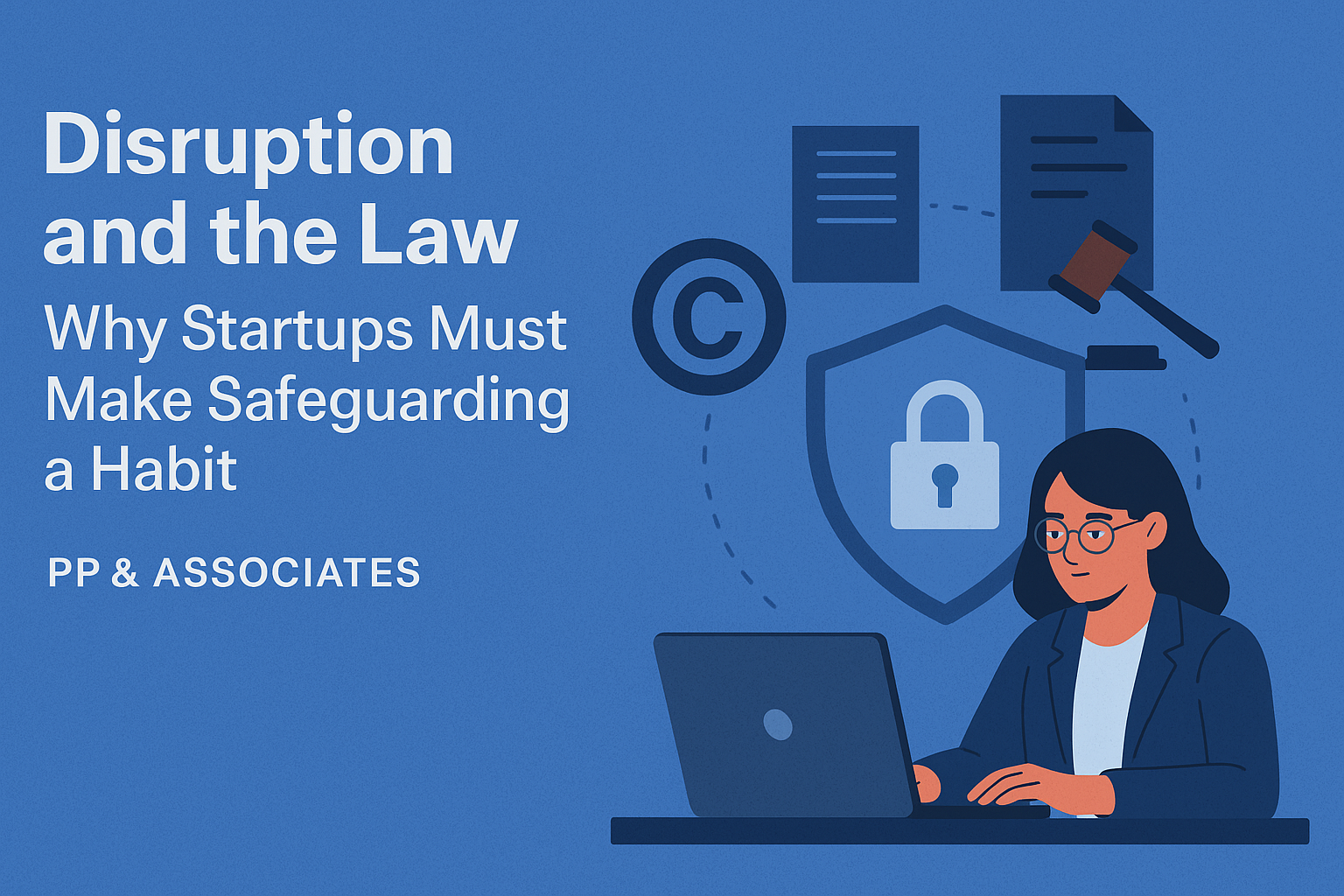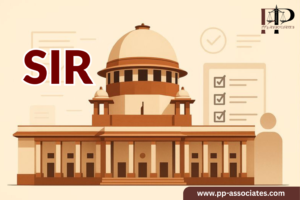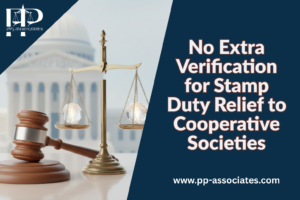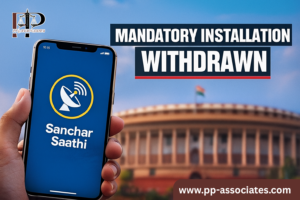When Mamaearth co-founder Ghazal Alagh remarked that “disruption isn’t a one-time event; it’s a habit,” she captured the essence of modern entrepreneurship. Innovation is not a campaign or a marketing gimmick—it is a discipline repeated day after day, asking relentlessly, “Can we do this better?” But in the rush to disrupt markets and win customers, many founders forget that disruption without protection is fragile. True sustainability for a startup does not lie only in continuous innovation but equally in continuous legal safeguarding. A habit of disruption must therefore be matched with a habit of legal preparedness.
At the heart of disruption lies intellectual property. A brilliant idea, whether in technology, design, or branding, can be rendered meaningless if it is left unprotected. Startups must see IP not as an afterthought but as their first asset. Trademarks secure the identity of the brand, patents safeguard unique innovations, design registrations protect product aesthetics, and copyrights ensure ownership over creative work. Trade secrets, too, deserve care through non-disclosure agreements and confidentiality clauses. In India, where “first-to-file” governs patents and trademarks, delay can mean losing ownership to competitors. Investors also measure valuation by the strength of a startup’s IP portfolio, and without one, even the most innovative business may appear vulnerable.
Just as disruption is continuous, so is compliance. Laws evolve quickly in India, particularly in technology, personal care, healthcare, and fintech. The Digital Personal Data Protection Act, 2023 (DPDP Act) has made data governance a statutory priority, requiring startups to embed privacy-by-design, obtain explicit consent, and appoint grievance officers from day one. Similarly, consumer protection and advertising laws hold brands accountable for exaggerated or misleading claims, and sector-specific rules demand licensing, testing, and periodic reporting. Non-compliance is not a minor risk—it can lead to reputational collapse, regulatory shutdowns, and investor withdrawals. Legal compliance must therefore be integrated into the very operating rhythm of a startup, not treated as a reaction to crises.
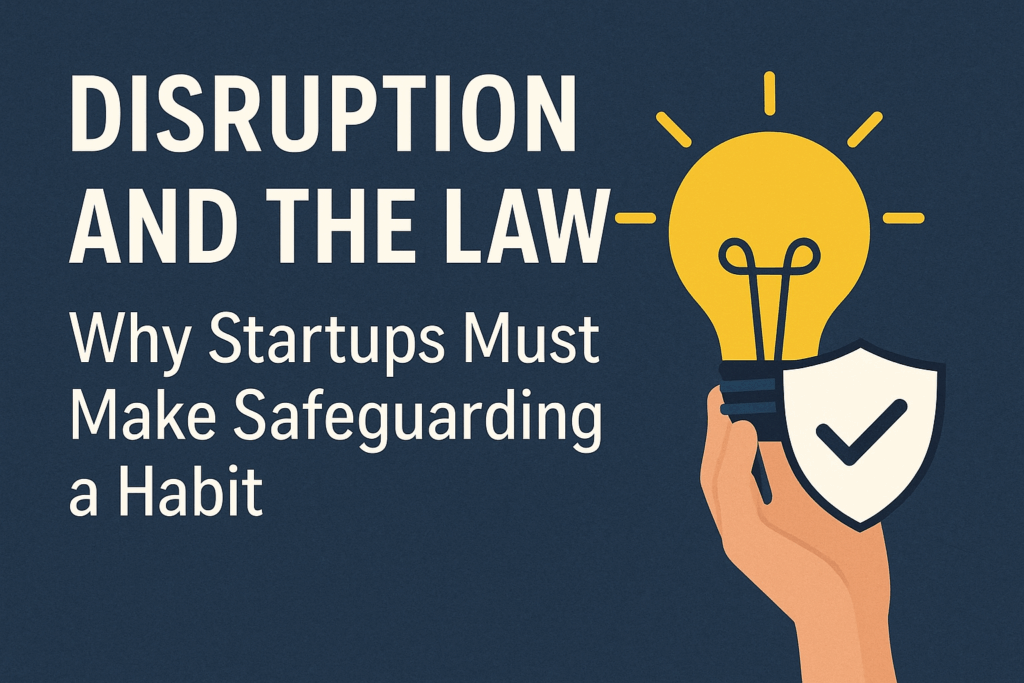
Contracts represent another cornerstone of clarity. Ghazal Alagh reminds entrepreneurs that disruption is not about making noise but about being clear and innovative. Contracts are where clarity is translated into enforceable relationships. A founders’ agreement is essential to prevent the most common cause of startup death: co-founder disputes. Equity vesting schedules, decision-making protocols, and exit mechanisms protect against betrayal or imbalance. Employment contracts and ESOP policies safeguard talent, while vendor and investor agreements must be drafted with foresight, incorporating termination rights, dispute resolution mechanisms, and obligations that anticipate growth or pivots. Poorly drafted contracts have derailed many otherwise promising businesses, often surfacing during investor due diligence when it is already too late.
Corporate governance forms the discipline that parallels innovation in scale. Choosing the right entity—usually a private limited company for fundraising ease—lays the foundation. As companies scale, governance structures such as boards, independent advisors, and compliance officers build investor confidence and regulatory credibility. Statutory filings, financial disclosures, and labor compliance cannot be skipped in the name of speed. In fact, their absence can become the very reason why a funding round collapses or a regulator intervenes. Governance, far from being a bureaucratic hurdle, is an enabler of scale and credibility.
Documentation and observation form another vital bridge between disruption and law. Just as Mamaearth grew by asking whether something could be done better, startups must apply the same spirit to their legal processes. Compliance dashboards, audit trails, and decision logs create transparency and accountability. Recording why a product was reformulated, why a vendor was rejected, or why a marketing claim was modified provides a strong defense if regulators or courts ever question decisions. In law, silence or absence of documentation often tilts the presumption towards negligence. Proper record-keeping transforms disruption into defensible progress.
Risk mitigation is where disruption’s tolerance for failure meets the law’s demand for accountability. Startups must embrace failure in innovation but anticipate liability in law. This means insuring directors, officers, and products; drafting force majeure, data breach, and transition clauses into contracts; and embedding arbitration or mediation mechanisms to ensure that disputes do not cripple operations. The modern investor looks for foresight in risk management as much as for creativity in product design. A startup that “fails fast and learns fast” must also “protect fast and adapt fast.”
Ultimately, building a culture of legal awareness is as important as building a culture of innovation. Every employee, from marketing executives to engineers, should know the basic dos and don’ts—do not copy competitor content, do not misuse customer data, and do not sign agreements without review. Legal awareness should not be confined to the founder’s desk or outsourced entirely to law firms; it must permeate the startup’s culture. Ghazal Alagh’s philosophy that disruption is a habit aligns perfectly with this truth: legal preparedness too must be a habit. When the two grow together, innovation is not just created but sustained, protected, and scaled. Startups that internalize this dual habit—habitual disruption and habitual safeguarding—transform themselves from fragile ventures into enduring institutions. Innovation without legal protection can vanish overnight, but innovation fortified by IP rights, compliance frameworks, clear contracts, governance, and risk preparedness becomes a legacy. As Mamaearth’s journey demonstrates, success is not born from a single moment of brilliance but from the disciplined repetition of habits. For founders, the habit of innovation must always walk hand in hand with the habit of legal safeguarding, for only then can disruption truly change markets and stand the test of time.

